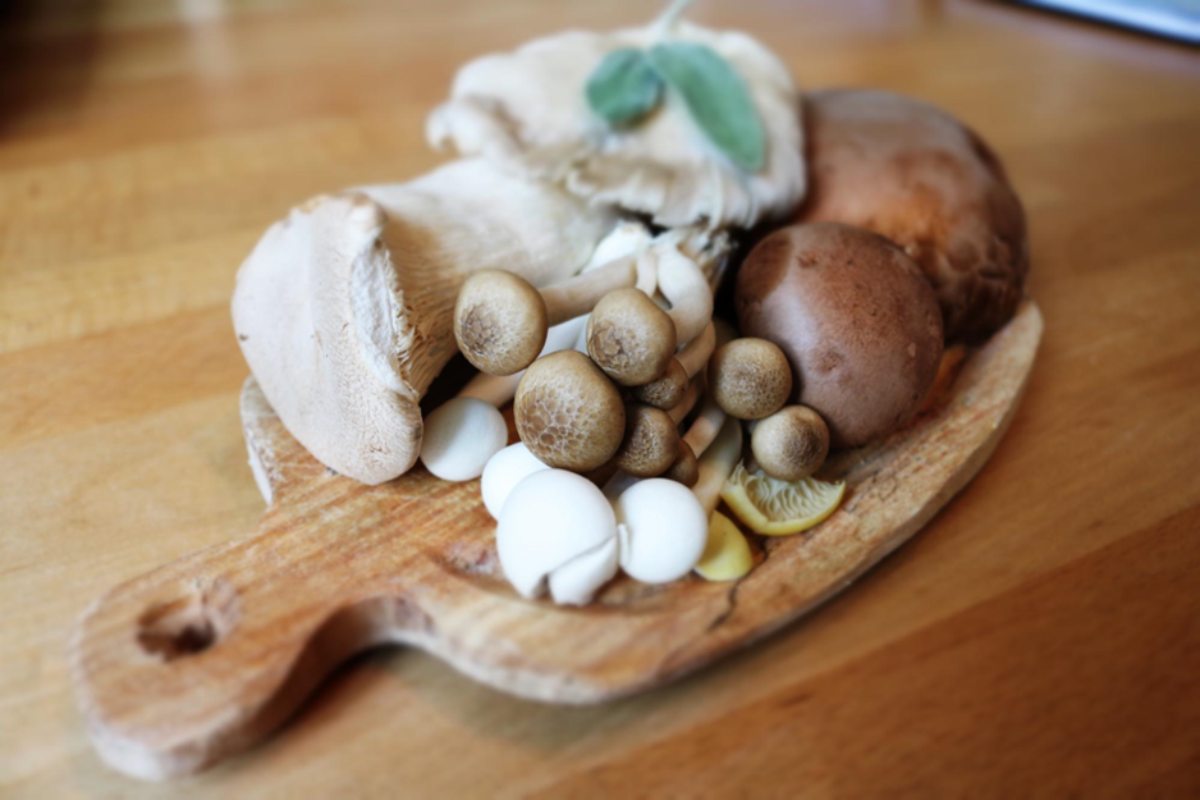For thousands of years, traditional medicine has relied on fungi for their restorative properties and life-enhancing nutrients. Today, these medicinal mushrooms are experiencing a resurgence of interest—and for good reason. They offer a wide range of benefits that support mental and physical health. In this article, we will explore the healing properties of various edible medicinal mushrooms and learn how to incorporate them into your daily diet.
Table of Contents
Mushrooms and their Health Benefits
- Reishi: Known as the ‘mushroom of immortality,’ reishi is used for its immune-boosting, anti-inflammatory, and stress-reducing properties. It is also thought to promote heart health, liver function, and overall longevity. Learn more about the benefits of Reishi mushrooms and how to incorporate them into your wellness routine.
- Chaga: This dark, woody mushroom grows on birch trees and is a potent antioxidant. Chaga supports immune function and digestive health and is believed to have anti-cancer properties.
- Lion’s Mane: Known for its unique appearance resembling a lion’s mane, this mushroom is a champion for brain and nerve health. It supports cognitive function, enhances mood, and may aid in the regeneration of nerve cells.
- Cordyceps: Cordyceps are best known for their energizing effects and ability to improve athletic performance. They also support lung health, enhance oxygen utilization, and have been shown to boost libido.
- Shiitake: Apart from their delicious umami flavor, shiitake mushrooms are packed with immune-boosting compounds and may help lower cholesterol levels and reduce inflammation.
- Maitake: Maitake, also known as ‘hen of the woods,’ is another highly nutritious mushroom believed to support immune health, regulate blood sugar levels, and promote overall well-being.
Choosing the Right Mushrooms
While many types of medicinal mushrooms are available, it is important to choose ones that are high quality, organic, and sustainably sourced. Mushrooms are known to absorb nutrients and toxins from their environment, so it is crucial to avoid purchasing products grown in contaminated areas. Additionally, look for products that indicate the use of both the fruiting body and the mycelium, as this will ensure a broader range of beneficial compounds.
There are numerous ways to incorporate the magic of medicinal mushrooms into your daily routine. Create soothing teas by steeping dried medicinal mushrooms in hot water. You can also blend mushroom powders into smoothies, hot cocoa, or coffee for an added health boost. Dried reishi, shiitake, or maitake mushrooms can also make for excellent additions to soups, broths, and stews. Their rich, earthy flavors will enhance any dish. Cook grains or rice with a piece of reishi, shiitake, or maitake for an infusion of nutrients and flavor, or add sautéed shiitake or maitake mushrooms to your morning eggs for a delicious and nutritious start to the day.
Supplements and Science
If consuming mushrooms in their whole food form isn’t for you, explore the world of tinctures and supplements. Many reputable companies offer mushroom extracts in liquid or capsule form that can easily be added to your daily supplement regimen.
Modern research continues to back up the therapeutic qualities of medicinal mushrooms. Scientists have isolated a wide variety of biologically active compounds in mushrooms, such as polysaccharides, terpenoids, and triterpenes. These compounds have demonstrated numerous biological activities, including anti-tumor, immune-modulating, and antioxidant effects. As more research emerges, it is becoming increasingly clear that mushrooms hold a treasure trove of natural substances that can support our health and well-being.
Precautions and Sustainability
As with any new addition to your diet, it is essential to exercise caution and listen to your body. Some individuals may experience allergies or gastrointestinal distress when first trying medicinal mushrooms. Start with small doses and observe any reactions before increasing your consumption. If you’re pregnant, breastfeeding, or taking medication, consult with your healthcare provider before using medicinal mushrooms.
Beyond their health benefits, cultivating medicinal mushrooms can have positive impacts on the environment and promote sustainability. Mushrooms are efficient decomposers and can break down organic waste, making them useful tools for waste management and soil improvement. Additionally, many mushrooms can be grown on agricultural byproducts and used materials, such as coffee grounds, transforming waste into valuable and nutritious food.
History of Cultural Use
The use of medicinal mushrooms is not a new concept. In fact, many ancient cultures around the world have long recognized the incredible powers of these natural healers. From traditional Chinese medicine to Ayurvedic practices in India, medicinal mushrooms have been utilized for centuries to treat a variety of ailments and promote overall wellness. Their widespread historical use provides a compelling testament to the potential of these fascinating fungi in supporting our health and well-being.
While the popularity of medicinal mushrooms has increased in recent years, their healing properties have been revered throughout history. As we continue to unlock the vast potential of these fascinating fungi, adding them to your diet can be a simple and enjoyable way to reap their numerous health benefits. Whether you choose to indulge in their flavors or experiment with tinctures and supplements, the magical world of medicinal mushrooms may prove to be an enriching addition to your wellness journey.

